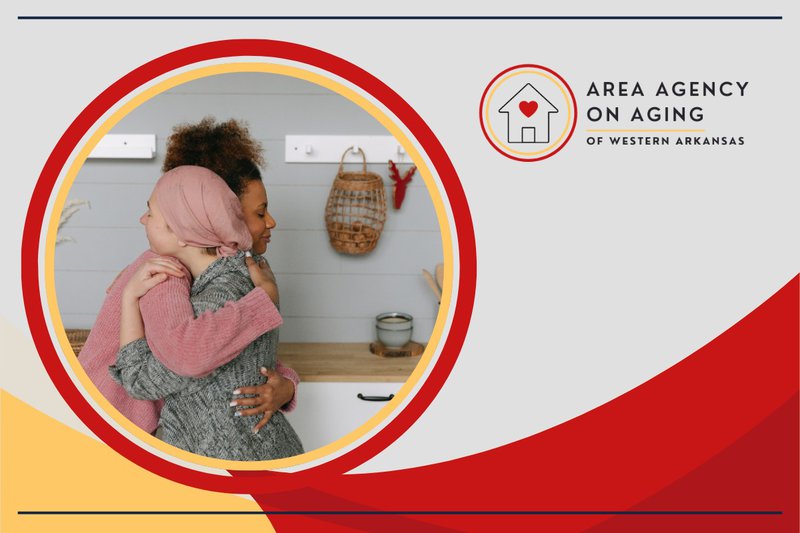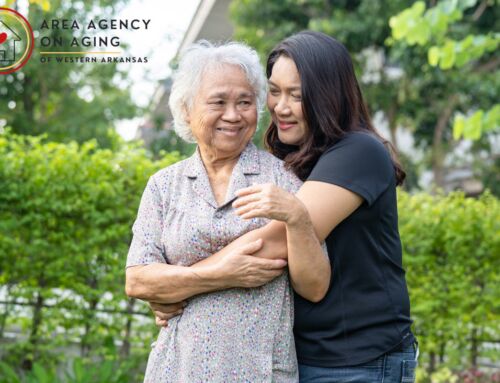Finding encouragement for caregivers can feel impossible when you're giving everything to someone else's care. You dedicate countless hours to your loved one's wellbeing, but who's checking on yours? You need more than generic advice—you need real, practical support that speaks to your daily struggles and celebrates your incredible strength.
Key Takeaways
- Inspirational quotes and daily affirmations help reduce stress and provide emotional validation for your caregiving efforts
- Simple self-care practices like hydration, movement, and brief moments of solitude prevent burnout and restore energy
- Building emotional resilience through support circles, mantras, and honest self-talk creates lasting strength for your caregiving journey
- Specialized caregivers in dementia, hospice, and chronic illness care need targeted recognition that validates their unique challenges
- Community connections and shared experiences ease isolation and provide practical support for daily caregiving tasks
- Meaningful appreciation focuses on specific actions rather than generic praise, offering deeper emotional impact for weary caregivers
How Quotes and Affirmations Can Transform Your Daily Caregiving Experience
One simple quote on your bathroom mirror can change your entire morning. Consider this powerful reminder:
"You are braver than you believe, stronger than you seem."
When exhaustion weighs heavily on your shoulders, these words can lift your spirit before you even start your day.
Caregiving often feels invisible to the outside world. You prioritize your loved one's needs while your own fade into the background. However, when you read quotes like "Caregivers are the quiet heroes of our world," something shifts. Suddenly, someone sees your sacrifice, acknowledges your strength, and validates your experience.
Building Daily Strength Through Positive Self-Talk
Daily affirmations work because they redirect your mental focus from worry to empowerment. Three simple phrases spoken aloud each morning can transform your mindset:
- "I am enough exactly as I am."
- "I possess the strength I need for today."
- "One step at a time leads to progress."
Research shows that positive self-talk reduces cortisol levels and improves emotional regulation. Even when you don't initially believe these statements, consistent repetition rewires your brain toward self-compassion and confidence.
Strategic placement amplifies their effectiveness. Keep motivational quotes where you'll encounter them naturally:
- In your car: "The greatest gift you give is your time, love, and presence."
- Near your coffee maker: "You cannot pour from an empty cup; fill yourself first."
- On your phone wallpaper: "Perseverance isn't a personality trait; it's a daily choice."
Choose quotes that resonate with your current emotional needs, just like selecting the right tool for a specific task. Some days require gentle encouragement, while others demand fierce motivation. Trust your instincts about what your heart needs to hear.
Practical Strategies to Prevent Burnout and Restore Inner Peace
Caregiver burnout develops gradually, then strikes suddenly. Prevention requires consistent, small actions rather than dramatic lifestyle changes. You don't need expensive spa days or week-long vacations—you need sustainable daily practices that fit within your current reality. For more information, explore what caregiving services are offered at Area Agency on Aging of Western Arkansas.
Essential Self-Care That Actually Works
Physical restoration starts with basics: proper hydration, nutritious meals, and movement. Even five minutes of stretching or a brief walk around your yard can reset your energy levels and clear mental fog.
Mental breaks don't require leaving your loved one's side. Turn off your phone for ten minutes while you sit quietly. Practice box breathing: inhale for four counts, hold for four, exhale for four, hold again. Repeat this cycle five times to activate your parasympathetic nervous system.
Emotional boundaries protect your well-being without diminishing your care. When guilt creeps in during self-care moments, remind yourself that maintaining your health enables better caregiving. Your loved one benefits when you're rested, nourished, and emotionally stable.
Encouragement for Caregivers: Fostering Emotional Stability
Establish one calming habit at the same time each day. This consistency signals to your brain that you matter too. Consider these simple options:
- Light a candle while enjoying morning coffee
- Step outside for three deep breaths before bedtime
- Listen to one favorite song while preparing meals
- Write down one positive moment from your day
These micro-rituals create pockets of peace within chaotic schedules. They become anchors that ground you when stress threatens to overwhelm your system.
Building Emotional Resilience During Your Caregiving Journey
Emotional resilience isn't about suppressing difficult feelings—it's about developing tools to navigate them skillfully. Each morning before beginning your caregiving duties, pause and place your hand on your chest. Say: "I have strength within me. My presence matters. I'm doing my absolute best."
Developing Mental Strength Through Connection
Isolation amplifies caregiving stress exponentially. Connecting with others who understand your experience provides validation and practical wisdom. Support groups offer shared encouragement for caregivers and proven strategies for common challenges.
When someone tells you, "You don't have to be perfect, just present," let those words sink deeply. Perfectionism exhausts your emotional reserves, while presence creates a meaningful connection with your loved one.
Essential mantras for difficult days:
- "I breathe in calm, I breathe out anxiety."
- "This day is challenging, and I will show up anyway."
- "I choose compassion over criticism, for myself and others."
- "Even the strongest people rest when needed."
Transforming Guilt Into Self-Compassion: Encouragement for Caregivers
Guilt whispers that you should do more, be better, sacrifice everything. Self-compassion responds with truth: you're doing everything one human being can reasonably accomplish. Your worth isn't measured by your exhaustion level.
Write down positive moments from each week—a shared smile, a peaceful conversation, a moment of laughter. These reminders reinforce why your caregiving matters while acknowledging the joy still possible within difficult circumstances.
Accept help when offered, and ask specifically for what you need. "Can you bring dinner on Tuesday?" or "Could you stay with Mom while I rest?" Clear requests make it easier for others to provide meaningful support.

Encouragement for Caregivers in Specialized Roles
Supporting Those Caring for Loved Ones with Dementia
Dementia caregiving presents unique emotional challenges that deserve specific recognition. Your patience during confused moments matters immensely. The calm presence you provide during difficult episodes creates safety and comfort, even when your loved one can't express gratitude.
Remember these truths during the hardest days:
- "Your gentle voice brings peace to chaos."
- "That quiet moment you created was exactly what they needed."
- "Your love reaches them even when words don't.”
In Alzheimer's care, grief unfolds slowly as abilities fade. Yet connection continues through smiles, touches, and familiar presence. Your dedication provides dignity during vulnerability—this work has profound meaning even when progress isn't visible.
Recognizing Hospice and Chronic Illness Caregivers
If you provide end-of-life care, you offer one of humanity's most sacred gifts. Your presence during the final chapters brings comfort to both patients and families. One hospice worker shared: "They may not remember everything, but I remember them all—and that remembering honors their life."
Cancer caregivers navigate constant uncertainty between appointments and test results. Your steady support during treatment appointments, your research into side effect management, your advocacy with medical teams—these actions provide hope during overwhelming seasons.
Affirmations for medical caregivers:
- "Your calm presence reduces their anxiety."
- "You protect their dignity during vulnerable moments."
- "Your advocacy ensures they receive excellent care."
Long-term caregivers need recognition that their marathon dedication matters deeply. There's no finish line, no graduation ceremony, no public acknowledgment. Yet your daily faithfulness creates immeasurable impact across generations.
The Power of Community Support in Caregiving
Caregiving shouldn't be a solitary journey, though it often feels that way. Community connections provide emotional sustenance, practical assistance, and perspective during overwhelming seasons.
Building Your Support Network
Local communities offer various caregiver resources, from support groups to respite care services. Area Agency on Aging of Western Arkansas provides comprehensive caregiver support programs designed specifically for your needs. Their services connect you with others navigating similar challenges while offering practical assistance.
Support groups create safe spaces to share experiences without judgment. When you hear another caregiver say, "I understand exactly how you feel," isolation begins to dissolve. Shared stories inspire courage and provide proven strategies for common obstacles.
Finding Practical Help in Your Community
Don't wait until a crisis hits to build your support network. Reach out proactively to establish connections that sustain you long-term:
- Join local caregiver meetups or online forums
- Connect with neighbors who might assist with small tasks
- Explore community meal programs or grocery delivery services
- Investigate respite care options for regular breaks
Many caregivers discover that asking for help actually strengthens relationships rather than burdening others. People want to contribute meaningfully—your request gives them that opportunity.
Meaningful Ways to Show Appreciation to Caregivers
If you want to encourage a caregiver in your life, specificity matters more than generic praise. Instead of saying "You're amazing," try "Your patient voice helped Dad feel safe during his confusion." Detailed recognition acknowledges the small daily actions that truly make a difference.
Words That Heal and Strengthen
Effective encouragement for caregivers focuses on observed behaviors rather than assumptions about feelings. Consider these examples:
- "You stayed calm when everything felt chaotic—that brought real peace."
- "Your research into treatment options shows incredible dedication."
- "The way he lights up when you enter the room speaks volumes about your care."
Written notes carry a lasting impact beyond verbal appreciation. A simple card saying "I see your sacrifice and I'm grateful" can provide strength during difficult weeks ahead.
Creating Lasting Support
Regular check-ins matter more than grand gestures. A weekly text asking "How are you holding up?" shows ongoing concern rather than fleeting attention. Offer specific assistance: "I'm grocery shopping Tuesday—what can I pick up for you?"
Remember that flowers fade, but encouraging words echo for months. Take time to acknowledge the caregiver's efforts specifically and sincerely. Your recognition validates their experience and reinforces their value during seasons when appreciation feels scarce.
Your Caregiving Journey Continues
Encouragement for caregivers isn't just a nice sentiment—it's essential fuel for your important work. You matter deeply, your sacrifice creates ripples of love across generations, and your dedication deserves recognition and support.
When exhaustion overwhelms you, return to these truths: you possess inner strength, your presence brings comfort, and seeking help demonstrates wisdom rather than weakness. Small daily practices build resilience over time, while community connections provide both practical assistance and emotional sustenance.
Your caregiving journey may feel invisible to the outside world, but its impact extends far beyond what you can see. Keep showing up, keep seeking support, and keep believing in the profound value of your loving care.
Area Agency on Aging of Western Arkansas stands ready to support your caregiving journey with comprehensive resources and programs designed specifically for your needs. You don't have to navigate this path alone—help is available, encouragement is real, and your work has lasting significance.
For additional support and connection with other caregivers facing similar challenges, explore the family caregiver support services available through your Area Agency on Aging of Western Arkansas. Your strength inspires others; contact us and together, we can continue providing excellent care for those we love most.


